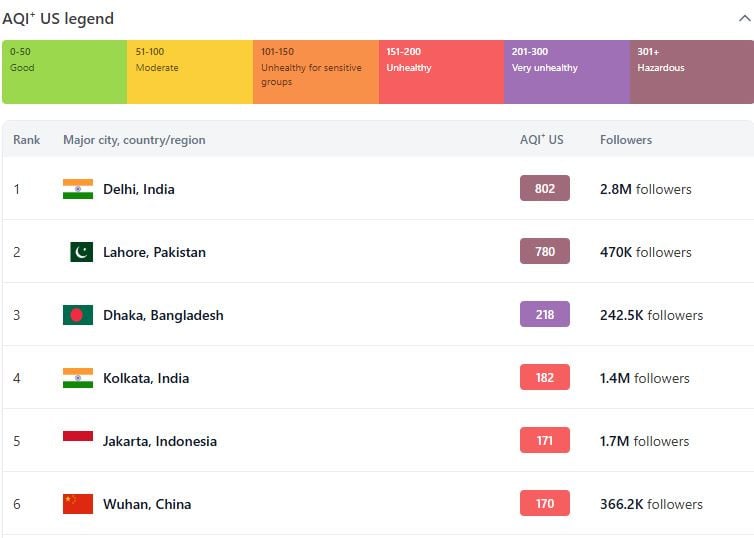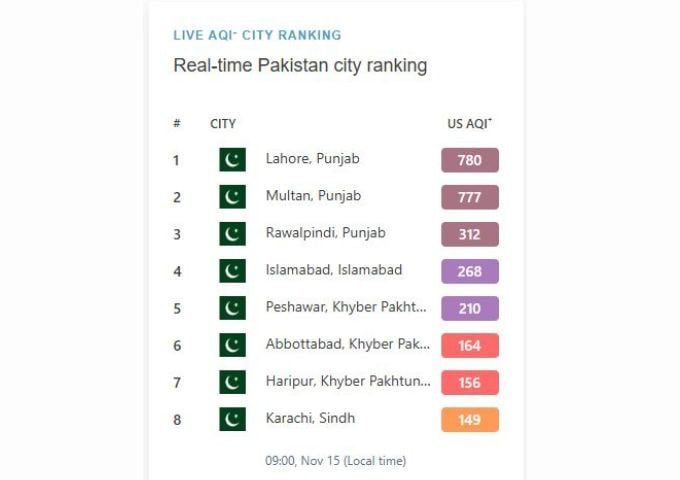1731651715-0/Express-Tribune-(1)1731651715-0.jpg)
Lahore has slipped to second place in the global pollution rankings, with New Delhi overtaking the city to claim the top spot as the world’s most polluted on Friday.

Photo: IQAir
The air quality index (AQI) in Lahore has reached hazardous levels, with readings soaring to 780 AQI, signaling a significant environmental and public health crisis.
The thick smog has enveloped much of Punjab's plains, severely reducing visibility and causing widespread disruption. The dense fog has caused zero visibility in several areas, leading to the closure of key motorways.

Photo: IQAir
Roads affected include the M-2 motorway (Islamabad to Lahore), M-3 motorway (Lahore to Dera Ghazi Khan), and Lahore-Sialkot motorway, all shut down due to hazardous air quality.
Additionally, sections of the M-4 motorway (Pindi Bhattian to Multan) and the M-5 motorway (Multan to Jalalpur and Sukkur) were also closed as the smog spreads southward, affecting Sindh after already impacting Punjab and Khyber Pakhtunkhwa.
The smog is the result of vehicle emissions, industrial pollution, and the seasonal practice of crop burning. This year, officials have also blamed pollution from India, with northern regions there experiencing similar air quality issues.
The provincial government has indicated plans to raise the issue with India's government through diplomatic channels.
Residents in Faisalabad and other affected cities have reported eye irritation, breathing difficulties, and other health problems.
In Gujranwala, reduced visibility caused by the thick smog led to a tragic road accident, with a bus colliding with a stationary truck, injuring seven people, including three children.
The smog crisis not only impacts public health but also hinders economic activities, with many businesses temporarily shutting down due to the hazardous working conditions.
Experts are calling for urgent action to mitigate pollution, with recommendations to reduce industrial emissions, curb crop burning, and address urban planning issues.
As the smog persists, authorities have urged residents to take precautions by limiting outdoor activities, using air purifiers, and wearing masks to reduce exposure to toxic air.
With winter temperatures continuing to trap pollution in the region, authorities and citizens are hoping for a break in the weather to alleviate the ongoing crisis.



1731655243-0/BeFunky-collage-(61)1731655243-0-165x106.webp)

1731666526-0/Express-Tribune-(9)1731666526-0-270x192.webp)
1731668520-0/Express-Tribune-(11)1731668520-0-270x192.webp)



1731656720-0/Copy-of-Untitled-(44)1731656720-0-270x192.webp)


1708870589-2/PATS-(3)1708870589-2-270x192.webp)






COMMENTS
Comments are moderated and generally will be posted if they are on-topic and not abusive.
For more information, please see our Comments FAQ